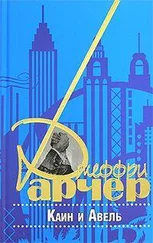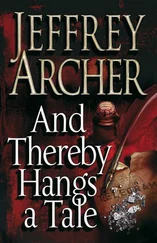He smiled for a second time.
Potter was now advancing with his final effort and, exhausted, he delivered another short ball, which should have been dispatched to the boundary with ease, but the Oxford captain took one pace backward and hit his own stumps. He was out, hit wicket, bowled Potter for 103. The crowd rose for a second time as he walked back to the pavilion, and grown men who had been decorated in two wars had tears in their eyes. Seven minutes later everyone left the field, drenched by a thunderstorm.
The match ended in a draw.
Septimus Horatio Cornwallis did not live up to his name. With such a name he should have been a cabinet minister, an admiral, or at least a rural dean. In fact, Septimus Horatio Cornwallis was a claims adjuster at the head office of the Prudential Assurance Company Limited, 172 Holborn Bars, London EC1.
Septimus’s names could be blamed on his father, who had a small knowledge of Nelson, on his mother, who was superstitious, and on his great-great-great-grandfather, who was alleged to have been a second cousin of the illustrious Governor-General of India. On leaving school, Septimus, a thin, anemic young man prematurely balding, joined the Prudential Assurance Company, his careers master having told him that it was an ideal opening for a young man with his qualifications. Some time later, when Septimus reflected on the advice, it worried him, because even he realized that he had no qualifications. Despite this setback, Septimus rose slowly over the years from office boy to claims adjuster (not so much climbing the ladder as resting upon each rung for some considerable time), which afforded him the grandiose title of assistant deputy manager (claims department).
Septimus spent his day in a glass cubicle on the sixth floor, adjusting claims and recommending payments of anything up to one million pounds. He felt if he kept his nose clean (one of Septimus’s favorite expressions), he would, after another twenty years, become a manager (claims department) and have walls around him that you couldn’t see through and a carpet that wasn’t laid in small squares of slightly differing shades of green. He might even become one of those signatures on the million-pound checks.
Septimus resided in Sevenoaks with his wife, Norma, and his two children, Winston and Elizabeth, who attended the local comprehensive school. They would have gone to the grammar school, he regularly informed his colleagues, but the Labor government had stopped all that.
Septimus operated his daily life by means of a set of invariant sub-routines, like a primitive microprocessor, while he supposed himself to be a great follower of tradition and discipline. For if he was nothing, he was at least a creature of habit. Had, for some inexplicable reason, the K.G.B. wanted to assassinate Septimus, all they would have had to do was put him under surveillance for seven days and they would have known his every movement throughout the working year.
Septimus rose each morning at seven-fifteen and donned one of his two dark pinstripe suits. He left his home at 47 Palmerston Drive at seven fifty-five, having consumed his invariable breakfast of one soft-boiled egg, two pieces of toast and two cups of tea. On arriving at Platform One of Sevenoaks station he would purchase a copy of the Daily Express before boarding the eight twenty-seven to Cannon Street. During the journey Septimus would read his newspaper and smoke two cigarettes, arriving at Cannon Street at nine-seven. He would then walk to the office, and be sitting at his desk in his glass cubicle on the sixth floor, confronting the first claim to be adjusted, by nine-thirty. He took his coffee break at eleven, allowing himself the luxury of two more cigarettes, when once again he would regale his colleagues with the imagined achievements of his children. At eleven-fifteen he returned to work.
At one o’clock he would leave the Great Gothic Cathedral (another of his expressions) for one hour, which he passed at a pub called The Havelock where he would drink a half-pint of Carlsberg lager with a dash of lime, and eat the dish of the day. After he finished his lunch, he would once again smoke two cigarettes. At one fifty-five he returned to the insurance records until the fifteen-minute tea break at four o’clock, which was another ritual occasion for two more cigarettes. On the dot of five-thirty, Septimus would pick up his umbrella and reinforced steel briefcase with the initials S.H.C. in silver on the side and leave, double locking his glass cubicle. As he walked through the typing pool, he would announce with a mechanical jauntiness, “See you same time tomorrow, girls,” hum a few bars from The Sound of Music in the descending lift, and then walk out into the torrent of office workers surging down High Holborn. He would stride purposefully toward Cannon Street station, umbrella tapping away on the pavement while he rubbed shoulders with bankers, shippers, oil men and brokers, not discontent to think himself part of the great City of London.
Once he reached the station, Septimus would purchase a copy of the Evening Standard and a packet of ten Benson & Hedges cigarettes from Smith’s bookstall, placing both on top of his Prudential documents already in the briefcase. He would board the fourth carriage of the train on Platform Five at five-fifty, and secure his favored window seat in a closed compartment facing the engine, next to the balding gentleman with the inevitable Financial Times , and opposite the smartly dressed secretary who read long romantic novels to somewhere beyond Sevenoaks. Before sitting down he would extract the Evening Standard and the new packet of Benson & Hedges from his briefcase, put them both on the armrest of his seat, and place the briefcase and his rolled umbrella on the rack above him. Once settled, he would open the packet of cigarettes and smoke the first of the two which were allocated for the journey while reading the Evening Standard . This would leave him eight to be smoked before catching the five-fifty the following evening.
As the train pulled into Sevenoaks station, he would mumble goodnight to his fellow passengers (the only word he ever spoke during the entire journey) and leave, making his way straight to the semi-detached at 47 Palmerston Drive, arriving at the front door a little before six forty-five. Between six forty-five and seven-thirty he would finish reading his paper or check over his children’s homework with a tut-tut when he spotted a mistake, or a sigh when he couldn’t fathom the new math. At seven-thirty his “good lady” (another of his favored expressions) would place on the kitchen table in front of him the Woman’s Own dish of the day or his favorite dinner of three fish fingers, peas and chips. He would then say, “If God had meant fish to have fingers, he would have given them hands,” laugh, and cover the oblong fish with tomato sauce, consuming the meal to the accompaniment of his wife’s recital of the day’s events. At nine, he watched the real news on BBC 1 (he never watched ITV) and at ten-thirty he retired to bed.
This routine was adhered to year in year out with breaks only for holidays, for which Septimus naturally also had a routine. Alternate Christmases were spent with Norma’s parents in Watford and the ones in between with Septimus’s sister and brother-in-law in Epsom, while in the summer, their high spot of the year, the family took a package holiday for two weeks in the Olympic Hotel, Corfu.
Septimus not only liked his life-style, but was distressed if for any reason his routine met with the slightest interference. This humdrum existence seemed certain to last him from womb to tomb, for Septimus was not the stuff on which authors base 200,000-word sagas. Nevertheless, there was one occasion when Septimus’s routine was not merely interfered with but, frankly, shattered.
Читать дальше












